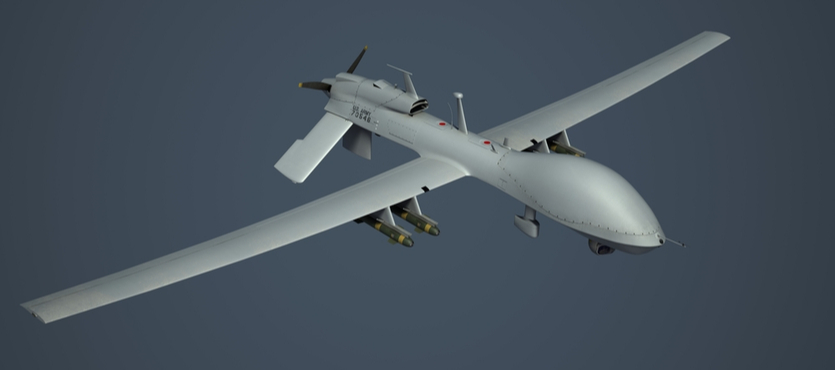Officials say that an October airstrike which killed seven terrorist leaders in northwestern Syria would significantly disrupt Al Qaeda’s activities in the war-torn country.
Few details about the attack. U.S. Central Command spokesperson Maj. Beth Riordan said that the assault occurred near Idlib. Major Riordan did not identify the dead terrorists, but stated that their demise would hinder al Qaeda’s operations not only in Syria, but also worldwide.
This incident took place about a week after a military operation in Afghanistan reportedly killed al Qaeda propaganda minister Husam Abd al-Rauf, who was on the FBI’s terrorism most wanted list.
Al Qaeda in Syria
Saudi dissident Osama bin Laden started al Qaeda in 1988 as something of a private army. By September 2001, it had become one of the largest and most dangerous terrorist organizations in world history. That growth continued for several more years.
But the 2010s were different. Bin Laden’s death in 2011, coupled with the group’s failure to drive the Americans from Iraq, crippled the group. Today, instead of a centrally controlled and single minded organization, al Qaeda, although it is still a threat, is spread around the globe. Ayman al-Zawahiri is the nominal head of the group, but he does not have nearly as much authority as bin Laden had. So, the loss of severn key lieutenants in Syria is a significant blow.
In 2003, Syrian strongman Bashar al-Assad publicly questioned al Qaeda’s strength and resolve. “Is there really an entity called al-Qaeda? Was it in Afghanistan? Does it exist now?” he asked rhetorically.
The terrorist group evidently saw Assad’s remarks as a challenge. Al Qeada, a Sunni group, quickly began opposing Assad’s Ba’ath Party/Shia government. Shortly after bin Laden’s death, in 2014, the group distanced itself from activities in Syria. Nevertheless, an estimated 10,000 al Qaeda fighters remain in-country.
Al Qaeda is just one of the groups vying for control of Syria. Government forces and their Russian allies currently control most of the country. But that could change, as a number of U.S.-backed rebel and rogue terrorist enclaves remain. Additionally, Turkey is firmly entrenched in northern Syria.
Rebuilding Syria
Al Qaeda continues to be a thorn in the side of not only the government, but the ongoing rebuilding efforts in Syria. The thousands of fighters are divided into hundreds of cells. And, it only takes one person to wear a bomb vest, set off an IED, or fire a rocket launcher. So, there is no such place as a “safe” area in Syria, even if the region is largely pacified.
Hundreds of American private military contractors are in-country as well. Before the rebuilding effort ends, hundreds more might be required, to secure American diplomatic and commercial interests in Syria.
As the Caesar Act economic sanctions take full effect, the situation in Damascus and other major cities is increasingly unstable. American diplomats and their families only feel safe if they are well-protected. Using servicemembers for such duties typically does not work out for anyone. Politicians here and abroad resent the fact that American troops are still in harm’s way. Additionally, the troops themselves do not particularly care for these kinds of tasks.
Private military contractors are trained for these kinds of operations. Since U.S. law forbids them from engaging in offensive operations, they are overseas exclusively to serve and protect. These are roles that contractors willingly embrace.
Roughly the same things apply to American commercial interests. The many construction sites in Syria make it impossible for one group, like the U.S. Central Command, to protect them all. Instead, groups of contractors must operate independently.
Contractors are very adept in this role as well. As a matter of fact, at one point, President Donald Trump considered privatizing the Afghanistan War because contractors are so much more flexible than regular servicemembers. When intelligence learns of a possible plot, additional well-trained contractors can be onsite in a matter of hours. That level of security helps companies complete projects large and small on time and under budget.
Furthermore, the workers themselves are often contractors. Frequently, American companies use contractors as onsite supervisors and locals as workers. This arrangement gives management more control over the project and gives local families an interest in completing the project. As a result, there are fewer delays.
Injury Compensation Available
Armed and unarmed overseas contractors equally risk injury. Given the lack of regulatory oversight and labor laws, a serious workplace accident is about as likely as a serious combat injury. The Defense Base Act provides compensation for both kinds of injuries.
This compensation includes medical bill payment and lost wages replacement. Almost all contractors are eligible for these benefits.
The Defense Base Act applies if the contractor was injured in an overseas war zone, and there is a nexus between the deployment and the injury.
The law defines a “war zone” as any country that has any U.S. military presence. So, whether or not bullets are flying, almost every nation in the world is a war zone. Almost every country at least has a military advisor in the U.S. embassy.
Furthermore, in most cases, the contractor must work for the U.S. government. The Department of Defense and the State Department are the two biggest employers. U.S. residence or nationality is not a requirement. Additionally, some contractors who work for sympathetic foreign governments are also eligible for DBA benefits.
Essentially, a “nexus” is an indirect connection. Assume Rex goes swimming partially for recreation and partially to keep physically fit. If he gets caught in a riptide, he is probably eligible for Defense Base Act benefits, even though his injury was not directly related to his duties as a contractor.
For more information about DBA benefits, contact Barnett, Lerner, Karsen, Frankel & Castro, P.A.

